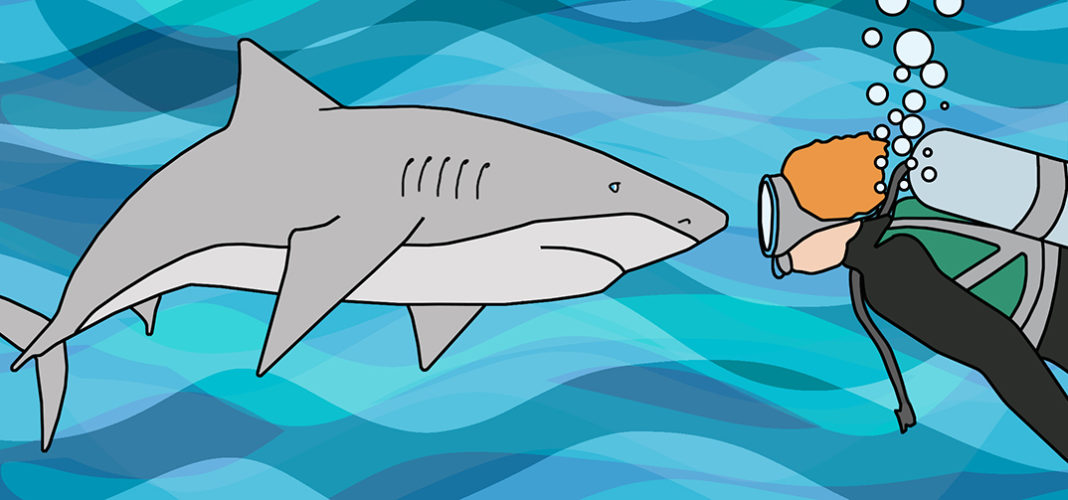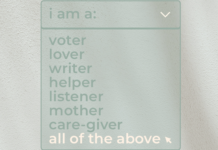William Winram is a record-holding free diver (no cage, no breathing apparatus) and a chance encounter with a shark over 25 years ago changed his life for the better. He was spearfishing for his dinner 800 meters offshore when he felt something to his right. That something was a tiger shark, and he was petrified with fear — tiger sharks are notoriously aggressive and known to take bites out of divers. However, the shark he met that day didn’t behave at all like a shark in horror movies. Winram recalls the meeting in an Australian newspaper:
The experience made him re-think everything he thought he knew about sharks. Since then he has been working as a conservationist and educator, committed to rehabilitating the shark’s image. He regularly free dives with Great White sharks and has learned a number of lessons along the way that translate into human life lessons:
1. Replace Fear with Knowledge
By closely observing and watching sharks, Winram has learned to literally swim with sharks. Rather than panicking and swimming away or being paralyzed with fear, he faces the shark head on. “If you don’t act like prey, they won’t treat you like prey.” He recommends a counter-intuitive approach if a shark is coming toward you – swimming right at the shark. The shark, like all things we are afraid of, is de-fanged when approached with greater knowledge and less fear.
2. Make Eye Contact
Winram recommends keeping eye contact with the shark at all times. “Once we make eye contact, the shark knows we have seen them and therefore taken their advantage away. This generally gives us the advantage and keeps them from slipping into an instinctual mode.”
3. (Mental) Preparation
Contrary to what people think, the most important breath is not the last breath free divers takes before diving. According to Winram, the most important breathing is the breathing he does “in the six to eight minutes leading up to the dive that’s oxygenating your blood and your tissues … You need to be able to go into that kind of Zen place where you’re completely relaxed, but with a wide open focus.” Controlled breathing promotes calmness and enhances focus (thereby keeping fear at bay). Being aware of one’s mind and body — and taking good care of them — are priorities, in free-diving and in life.
4. Pay Attention
“When we’re around sharks we need to be 100 percent focused. As soon as you’re less than 100 percent focused, that’s when they begin sneaking in and seizing the advantage.” Free divers are never on autopilot because a moment of inattention could have disastrous consequences. A vigilant focus when swimming with sharks is essential for survival. Paying attention to what matters in life is essential too — part of this is recognizing that first impressions aren’t always correct.
5. Never Swim Alone
Winram always free dives with at least two others, and they all watch each other’s back. In addition to constantly being on the lookout for sharks, diving with others is essential because a risk of diving is blacking out. Survival depends on his connection to his team. There’s no more literal metaphor for life.
6. Enjoy the Beauty
Winram thinks of swimming with sharks as a privilege. He is in awe of their majestic beauty and grace and has tremendous respect for the creature he has learned so much about and that has taught him so much about himself. Through knowledge and experience, it is possible to reframe perceptions. What was initially scary to Winram became a positive, life-altering calling.
I wish you all the best,
Dr. Samantha Boardman






